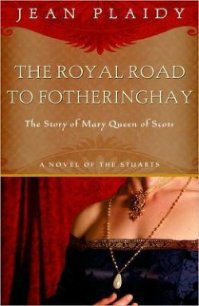The Lion of Justice - Plaidy Jean (книги без регистрации полные версии .txt) 📗
‘Could she have seen the King...dead?’
‘I cannot see how she could have done so.’
‘Doubtless she was a witch.’
‘She had the appearance of such.’
‘And she said Hail to you and called you King. Rufus does not return. There is one thing you must do if the King is indeed dead, and that is to take the Treasury. Once you have that in your possession you have only to win the people to you and the crown is yours.’
‘I know it well. We will not both sleep at the same time this night. I will keep watch for three hours, then so will you while I sleep. We must be fresh for the morning.’
Morning came.
William Breteuil was asking everyone: ‘Where is the King? Have any seen him?’
But no one had.
It was in the middle of the morning when Purkiss the charcoal burner leading his horse and accompanied by a few of the local churls brought the body in his cart to Linwood Lodge.
Henry with the others went out to see what was in the cart.
When he saw the body, and in spite of the mire and mud recognized it, a great exultation came to him. The woman’s words had been significant.
William Breteuil was there too.
He cried: ‘My God, this is the King.’
‘He is dead.’ said Henry.
‘Killed in his own forest.’ murmured Breteuil.
Henry knew that there was no time to lose. If he did not claim the crown, someone might claim it on Robert’s behalf. He knew what was passing in Breteuil’s mind and without a moment’s delay he ran to the stables. Henry Beaumont was already there saddling the horses and in a few moments they were galloping away on the road to Winchester.
Breteuil understood. He leaped onto his horse and was speeding after Henry.
Henry and Beaumont spurred on their horses. They knew that Breteuil’s idea was to stop them and to claim the crown of England for Robert.
That must not be. The crown belonged to Henry. This was his great moment. He kept hearing the words of the weird woman ringing in his ears: ‘Hail, King of England.’
King of England he would be and the next days were the most important in his life.
He was ready to take the challenge.
No one was going to stop him now.
By God’s mercy, he thought, I must reach Winchester before Breteuil.
He would never forget that ride. The constant fear that his horse would fail; the anxiety that Breteuil would outdistance him; the great relief when he reached the door of the Treasury and found that he and Beaumont had arrived first.
‘Open in the name of the King,’ cried Beaumont.
The startled custodian stared at him and Henry.
Beaumont had his sword at the man’s throat.
‘William II is dead—killed hunting in the forest. Henry I is King of England. On pain of death open the door.’
The door was opened and Henry and Beaumont had command of the Treasury.
It was not long afterward when Breteuil arrived to find Henry and Beaumont at the door, their swords drawn.
‘I claim the crown and regalia on behalf of Robert, the eldest son of William I.’ said Breteuil.
‘I claim the crown and regalia as an English King born on English soil, educated in England, and the son of the Conqueror,’ retorted Henry.
By this time many other nobles had arrived. The position was clear to them. Henry was on the spot. Robert was far away on a Crusade to the Holy Land. Normandy was in pawn. Henry had shown himself a good general; Robert was known to be feckless.
Those who supported Henry were firmly behind him, while Robert’s adherents hesitated. Some of them, however, murmured together that this was a usurpation of the crown.
Henry spoke to them then. Being more learned than his brothers he had always been able to express himself with a force and logic which they had lacked.
‘I am English,’ he said, ‘as none of my brothers ever could be. My father was aware of this. It was for this purpose that he sent me to England at an early age and put me in the care of that great scholar Archbishop Lanfranc. The people of this country want an English King. I will marry at once. I have chosen for my bride the Princess Edith who is a member of the Saxon Royal Atheling family. Our children will be entirely English. Those who stand beside me will not be forgotten. There were many harsh laws made by my brother. These I will change. I have been educated to govern. Accept me as your King and I promise you peace and prosperity. Reject me in favour of my brother—who has been singularly unsuccessful in his own domain which is now in pawn to the English crown—and you will plunge this country into bitter war.’
The realization of the truth of this, the promises Henry made, and the knowledge that he had qualities which would make him a better ruler than his brother were decisive. Grudgingly those Normans who had been ready to give their support to Robert gave way. Henry was proclaimed King. He took possession of the Treasury and Regalia.
‘We must needs now win the same support in London.’ said Beaumont.
Within a few hours they were riding to London.
* * * * *
Henry had been called a lawyer. The Normans had nicknamed him ‘Henri Beauclerc’. It was so rare to find a scholar king. Even the Conqueror had scarcely been that.
Henry knew that the consent to his accession could well waver; he had to consolidate his position, which meant pandering to those who might well stand against him...temporarily of course.
He believed he would have the humble people with him, for their hatred of the Normans had persisted ever since 1066. They still looked upon them as the conquerors. So he would appeal to the Saxon section of the community.
He called together all the leading men of the towns and villages and spoke to them.
‘My friends and liegemen, natives of this country in which I myself was born, you know that my brother would have my crown. He is a haughty man who cannot live peacefully. He openly despises you, believing you to be cowards and gluttons. He would scorn you and trample you under his feet. But I, a mild and pacific King, would maintain you in all your ancient liberties. I would govern you with moderation and prudence. I will give you, if you require it, a written promise to this effect, signed with my own hand. I will confirm what I write by my oath and my seal. Stand firm then, by me. For supported by English valour I fear not the mad menaces of the Normans.’
It was a clever speech, calculated to move the oppressed people where they were most affected. Henry’s lawyer’s mind was already busy. He intended to govern sternly but justly as his father had. He wanted a prosperous kingdom and he knew how to get it. He was not sure how many of the promises he made at this juncture would be kept; he only knew that they had to be given.
He caused copies of the speech to be made; his seal was set on it and it was put up in all cathedrals and abbeys throughout the country.
The people were won over by this calm and reasoned statement. They told themselves that the cruel days of Rufus were over. They would have a King who would marry and give the country heirs. The last King’s influence on the morals of the land would be over. There would be no more ridiculous fashion, with men apeing women and painting their faces and frizzing their hair. England would become a country of brave men.
Henry was accepted.
He was determined to show that he was no coward and ordered that his coronation should take place without delay in Westminster Abbey. There would be danger, he knew. It would be an occasion when his enemies might rise and make slaughter in the streets. He must take the risk. He could only feel safe when he was the crowned king of England.
So three days after the death of Rufus, Henry’s ceremonious coronation took place.
* * * * *
Meanwhile Rufus’s decomposing body was brought to Winchester by Purkiss and the five churls who had accompanied him. They took it to the close of St. Swithin’s Minster and presented themselves to the Abbot.




